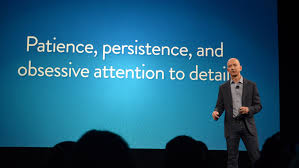 At the end of my last MBA course, my students had to give a presentation for their final grade. Their task was to analyze an existing business and make recommendations on what their next strategic steps should be. Seemed pretty straight forward to me. And yet the results were dismal. The worst part was that I sat there wondering if they had ever given a presentation and if they knew how to structure an argument.
At the end of my last MBA course, my students had to give a presentation for their final grade. Their task was to analyze an existing business and make recommendations on what their next strategic steps should be. Seemed pretty straight forward to me. And yet the results were dismal. The worst part was that I sat there wondering if they had ever given a presentation and if they knew how to structure an argument.
Being able to communicate a strategy, a business model or even just a decision is required in every day business life. Whether you are an employee of a small company or a Fortune 500, whether you are working for your family business or are running your own company. Poor communication and presentation skills can sink your brand and your career.
These are just some of the points I jotted down that day:
- Be a good storyteller
It is in our nature to need stories. Since the beginning of time where we all sat around a campfire, people have been fascinated by stories. And with a compelling story we can sell a product, an idea, a brand. That does not mean that you do not need Power Point. But putting together a good presentation deck gives you the ability to tell the story. It helps you walk your audience through an argument that should lead it to a desired conclusion. Like a good novel or film, it gives you and the listener an arch. Of course, there are people out there who are amazing storytellers. Who can get the message across just by purely having a conversation. But let’s be honest, most of us are not that type. And free speech easily turns into rambling. And that’s a sure guarantee to miss bringing your point across. - Tick Tock
Regardless of how much time you are given to present – use it and use it wisely. The most important thing (as mentioned above) is that you get all key points across. Here is where a good deck can help you. It will help you control your tempo and make sure you stick to your structure. You want your arguments to build up in order to come to a strong conclusion. Research shows that people retain structured information up to 40% more reliably and accurately than information that is presented in a more freeform manner (Source: Matt Abrahams).You need to take your audience on a journey with a destination. That’s why you should also never jump around in a deck as it will break your flow. If your audience asks a question that is answered later in the deck, tell them. - Don’t disrespect the process
If you think you can just wing it, think again. The first version will probably never be great. So take another look at it, get outside feedback and rework it. And of course make sure to have dry runs and to practice. At the end of the day it’s a process. Respect it and get better results. - Learn from the best
I know that Power Point seems old, boring, bureaucratic and the stuff that Dilbert cartoons are made of. But do some research and you will see that many of the great CEOs and entrepreneurs out there mostly use a presentation deck to deliver their message – just type in Elon Musk Presentation or Jeff Bezos Presentation and you will see what I mean. Watch some TED Talks and see how the great storytellers go about it. Ensuring that you build up your presentation skills, means to ensure that you leave a good impression on your audience.
There’s a Native American proverb that says, “Those who tell the stories rule the world.” So if we want to be good at our jobs we need to make sure we tell them to the best of our ability.